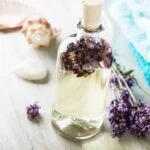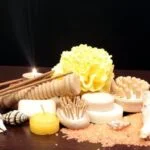Are you a massage therapist wondering if it’s legal to use aromatherapy on the face? Aromatherapy has become increasingly popular in massage therapy, offering numerous benefits for clients. In this article, we will explore the legalities and ethical considerations of integrating aromatherapy into facial massage.
Aromatherapy involves using essential oils to enhance the massage experience, providing therapeutic benefits such as relaxation, stress relief, and improved wellbeing. As the use of essential oils expands in the field of massage therapy, it is important for therapists to understand the regulations regarding aromatherapy on the face to ensure compliance with legal and ethical standards.
In this comprehensive guide, we will delve into the legal aspects of incorporating aromatherapy into facial massage, discussing its benefits and risks. We will also examine case studies and success stories to provide real-life examples of how aromatherapy can be effectively used on the face in a massage therapy setting. Additionally, we will outline best practices for integrating aromatherapy into facial massage to help you navigate the legalities and ethical considerations associated with this practice.
Understanding the Legalities of Aromatherapy in Massage Therapy
Aromatherapy is a popular and effective component of massage therapy that involves the use of essential oils to promote relaxation and healing. However, when it comes to incorporating aromatherapy into facial massage, massage therapists need to be aware of the legalities and regulations surrounding this practice.
In many regions, including the United States, the use of aromatherapy on the face is legal for licensed massage therapists. However, there are certain guidelines and regulations that must be followed to ensure safety and compliance with the law. Firstly, it is important for massage therapists to have extensive training in aromatherapy and understand the specific properties and effects of essential oils before using them on clients’ faces.
To legally use aroma therapy in face massages in a professional setting may require obtaining consent from clients prior to using essential oils on their face. The therapist should also keep detailed records of the oils used, any adverse reactions or sensitivities reported by clients, as well as comply with state regulations regarding the purchase, storage, and usage of essential oils.
Furthermore, it is crucial for massage therapists to consult with their state licensing board or regulatory agency to stay updated on any changes or new requirements regarding aromatherapy use in facial massages. By staying informed about legalities and best practices related to aromatherapy on the face, massage therapists can ensure they are providing safe and effective treatments while complying with relevant laws and regulations.
- Ensure you are licensed or certified as a massage therapist
- Complete additional training in aromatherapy
- Obtain client consent before using essential oils on their face
- Keep detailed records of essential oil usage and any client reactions
- Stay informed about state regulations related to aromatherapy
The Benefits of Aromatherapy on the Face
Aromatherapy offers a wide array of benefits when incorporated into facial massage therapy. The use of essential oils on the face can enhance the overall experience for clients, providing both physical and psychological benefits. Here are some of the key advantages of aromatherapy on the face:
1. Skin Rejuvenation: Essential oils such as lavender, rosehip, and frankincense are known for their skin rejuvenating properties. When applied to the face during a massage therapy session, these oils can help improve skin tone, reduce signs of aging, and promote a healthy complexion.
2. Relaxation and Stress Relief: Aromatherapy has long been recognized for its ability to promote relaxation and alleviate stress. When used on the face during a massage, essential oils like chamomile, bergamot, and ylang-ylang can help induce a sense of calmness and tranquility in clients.
3. Respiratory Benefits: Due to their aromatic properties, certain essential oils used on the face can also offer respiratory benefits. Oils such as eucalyptus and peppermint can help clear sinuses, reduce congestion, and improve breathing during a facial massage.
It is important to note that while there are numerous benefits associated with aromatherapy on the face during massage therapy sessions, it is crucial for massage therapists to be knowledgeable about the legalities and guidelines surrounding the use of essential oils in this context.
When incorporating aromatherapy into facial massage treatments, it is essential for massage therapists to consider any potential risks and contraindications associated with specific essential oils. Additionally, obtaining proper training and certification in aromatherapy can ensure that therapists are equipped to provide safe and effective treatments for their clients.
Risks and Considerations for Aromatherapy on the Face
When it comes to aromatherapy on the face, massage therapists need to be aware of certain risks and considerations before integrating essential oils into their practice. While aromatherapy can provide numerous benefits for the skin and overall well-being, there are potential drawbacks and precautions that should be taken into account.
One important consideration is the potential for skin irritation or allergic reactions when using essential oils on the face. The skin on the face is more delicate and sensitive compared to other areas of the body, so it is crucial for massage therapists to dilute essential oils properly and perform a patch test on clients before applying them during a facial massage.
Additionally, therapists should be aware of any contraindications or sensitivities that their clients may have to specific essential oils.
Furthermore, there is a risk of essential oil ingestion when applied to the face, especially if they come in contact with the lips or mouth. This can be particularly concerning if certain essential oils are toxic when ingested. Therefore, massage therapists should exercise caution and use only high-quality, pure essential oils that are safe for topical application on the face.
In addition to these risks, massage therapists must also consider ethical implications when using aromatherapy on the face. It is important to obtain informed consent from clients regarding the use of essential oils during facial massages, as well as communicate openly about any potential risks or side effects associated with aromatherapy. By being mindful of these risks and considerations, massage therapists can ensure a safe and effective integration of aromatherapy into their facial massage practice.
| Risks and Considerations | Aromatherapy on the Face |
|---|---|
| Skin irritation or allergic reactions | Dilute essential oils properly and perform patch tests |
| Risk of ingestion | Use high-quality, pure essential oils safe for topical application |
| Ethical implications | Obtain informed consent from clients and communicate openly about potential risks |
Regulations and Guidelines for the Use of Essential Oils on the Face
In the practice of massage therapy, aromatherapy is often used to enhance the client’s experience and promote relaxation. However, when it comes to using essential oils on the face, there are specific regulations and guidelines that must be followed to ensure safety and legality.
The use of essential oils on the face in massage therapy falls under the category of skin care, and as such, massage therapists should be well-versed in the regulations and guidelines set forth by their local health authorities or professional organizations. It’s important for therapists to understand the potential risks involved with applying essential oils to the face, as well as any contraindications that may apply to specific clients.
One common consideration when using aromatherapy on the face is the risk of skin sensitization or irritation. Certain essential oils are known allergens or can cause photosensitivity if applied to the skin before sun exposure. Additionally, there may be specific guidelines regarding dilution ratios for certain essential oils when used on facial skin. It’s essential for massage therapists interested in incorporating aromatherapy into facial massage to research and understand these regulations thoroughly.
| Regulations | Guidelines |
|---|---|
| Understanding local health authority regulations | Researching contraindications for specific clients |
| Awareness of potential skin sensitization or irritation risks | Knowledge of dilution ratios for certain essential oils |
Case Studies and Success Stories of Aromatherapy on the Face
Aromatherapy has been widely used in massage therapy to enhance the overall experience for clients. When it comes to using aromatherapy on the face, there are numerous success stories and case studies that showcase its positive impact on clients. These stories provide a deeper understanding of how aromatherapy can be beneficial when incorporated into facial massages.
Success Stories
Many massage therapists have reported success stories after incorporating aromatherapy into their facial massage sessions. Clients have expressed feelings of relaxation, rejuvenation, and relief from stress and tension. Some have even reported improvements in their skin’s condition, such as reduced acne or improved complexion. These success stories demonstrate the potential benefits that aromatherapy can bring to clients who receive facial massages.
Case Studies
Numerous case studies have been conducted to investigate the effects of aromatherapy on the face during massage therapy. The findings consistently show positive outcomes, including decreased stress levels, improved mood, and enhanced relaxation for clients. Additionally, some case studies have also highlighted the potential benefits of specific essential oils for treating certain skin conditions or promoting skin health.
Professional Experiences
Massage therapists who have integrated aromatherapy into their facial massage treatments have noted significant improvements in client satisfaction and overall experience. By customizing essential oil blends based on individual client needs and preferences, practitioners can create a tailored aromatherapy experience that elevates the benefits of facial massages. The professional experiences of these therapists serve as valuable examples of how integrating aromatherapy into facial massages can enhance the overall well-being of clients.
Best Practices for Integrating Aromatherapy Into Facial Massage
Aromatherapy has become increasingly popular in the field of massage therapy, and many therapists are looking to integrate it into their practice, even on the face. While the use of essential oils can provide numerous benefits, it is important for massage therapists to understand the best practices for incorporating aromatherapy into facial massage.
Choosing the Right Essential Oils
When using aromatherapy on the face during a massage, it is crucial to select essential oils that are safe and suitable for use on delicate facial skin. Therapists should consider factors such as skin type, allergies, and any existing skin conditions when choosing essential oils. It is also important to dilute essential oils with a carrier oil before applying them to the face to prevent any adverse reactions.
Application Techniques
Proper application techniques are key when using aromatherapy on the face during a massage. Therapists should use gentle and controlled movements when applying essential oils to ensure that they are evenly distributed across the skin. Additionally, avoiding contact with sensitive areas such as the eyes and mucous membranes is essential to prevent any discomfort or irritation for the client.
Educating Clients
Incorporating aromatherapy into facial massage requires clear communication with clients about the benefits and potential risks associated with essential oils. Educating clients about the specific essential oils being used, their properties, and any potential contraindications can help ensure their comfort and safety during the treatment. This also allows clients to make informed decisions about whether they are comfortable with aromatherapy being used on their face.
Conclusion
In conclusion, the use of aromatherapy on the face by massage therapists raises important legal and ethical considerations. While there is no universal regulation specifically addressing this practice, massage therapists must ensure that they are adhering to local laws and guidelines related to the use of essential oils in their practice. It is crucial for therapists to seek out proper training and certification in aromatherapy to ensure that they are using essential oils safely and ethically on their clients’ faces.
Furthermore, it is essential for massage therapists to thoroughly assess each client’s individual needs and medical history before incorporating aromatherapy into facial massage. This includes being aware of any potential risks or contraindications associated with using essential oils on the face, such as skin sensitivities or allergies. By taking these factors into consideration, massage therapists can minimize potential risks and provide a safe and effective aromatherapy experience for their clients.
Ultimately, navigating the legalities and ethical considerations of using aromatherapy on the face as a massage therapist requires diligence, proper education, and a commitment to upholding high standards of professional practice. With an understanding of regulations, best practices, and safety precautions, massage therapists can confidently integrate aromatherapy into their facial massage treatments while prioritizing the well-being of their clients.
Frequently Asked Questions
Can a Massage Therapist Massage Your Face?
Yes, a massage therapist can massage your face as part of a facial massage or treatment. It can help to relax facial muscles, improve circulation, and promote overall skin health.
Can I Use Essential Oil for Face Massage?
Essential oils are commonly used in face massages to enhance the experience and provide additional benefits such as relaxation or skin nourishment. However, it’s important to properly dilute essential oils and perform a patch test to avoid any adverse reactions.
Can Massage Therapists Cleanse the Face?
While some massage therapists may offer facial cleansing as part of a holistic spa treatment, it’s not typically within their scope of practice. Estheticians or skincare professionals are usually the ones trained to properly cleanse the face and perform facial treatments with specific products tailored to individual skin needs.

Are you looking for a natural way to improve your health and wellbeing?
If so, aromatherapy may be the answer for you.





